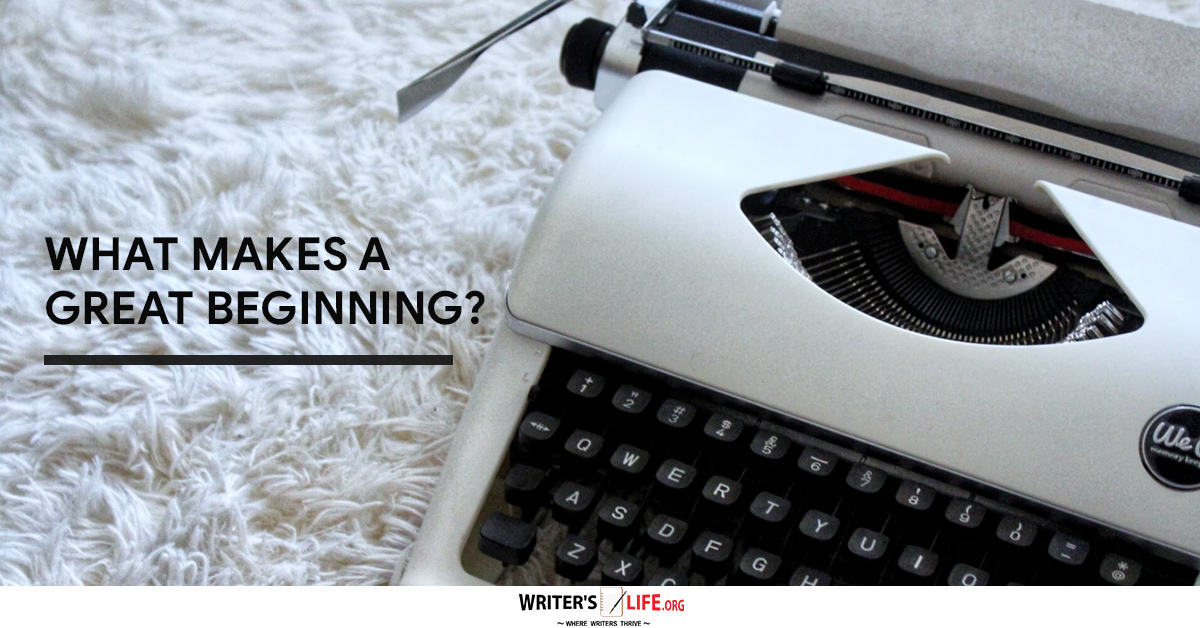- How To Tackle Jealousy In Creative Writing
- Common Submission Mistakes
- How To Stop Your Blog Becoming Boring
- The One Thing Every Successful Writer Has In Common
- How To Make Yourself Aware Of Publishing Scams
- Why Almost ALL Writers Make These Grammar Mistakes At Some Point
- 5 Tips For Authors On How To Deal With Rejection
- Top Mistakes to Avoid When Writing a Novel
- How to Avoid Common New Writer Mistakes
- 10 Mistakes New Fiction Writers Make
What Makes A Great Story Beginning?

Undertstanding what makes a great story beginning is so important. Beginning your novel is often the very most challenging part. No matter how much research you have done, no matter how often you have mentioned your idea to family and friends and they have gone ‘wow, that sounds brilliant,’ no matter how much work you have done creating timelines, spider maps, chapter outlines and so on, when you actually sit down, pull up a blank document on your computer and take a deep breath…it can suddenly feel like writing a note is a very overwhelming task indeed.
Your story beginning can be daunting
To be honest, if you feel this way, you are not wrong. Writing a book is a mammoth undertaking, and if you are feeling a little daunted by the prospect, you are not alone. The beginning of your novel feels so massive because it is hugely important. A weak opening can put readers off before they’ve even bought your book. Think about it; if you hope to have your book in bookstores, browsers will often pick up a book they are interested in a have a scan of the first few pages to see if it’s something that they might like. Similarly, on giant bookselling sites such as Amazon, readers can sample your novel without buying it if you use the ‘look inside’ feature. So, in short, your beginning has to be good.
So what are the kinds of things writers should be aware of when crafting the opening to their stories? Here are some things to consider.
Make the fist line startling
Your very first line should be startling, attention-grabbing, arresting, and unusual.
Begin in the middle of action
Don’t wait too long before creating action. In fact, if possible, begin with action to immediately draw your readers in.
Introduce your intriguing protagonist
Make sure your protagonist makes an appearance, and that he is compelling and exciting and relatable from the get-go.
Don’t forget to set the scene
Action is essential, but so is grounding your readers and immersing them in your world.
Set the mood
Show your readers what to expect by creating a mood and atmosphere that will keep them gripped and wanting more.
Up the stakes
Add drama right away by upping the stakes in the first chapter - don’t make your readers wait for your story to get interesting.
End your chapter with a cliffhanger
Add tension and excitement immediately by ending the first chapter on a cliffhanger that means readers will find it impossible to was away from your story.
Don’t get lost in exposition
Don’t get too bogged down in details, backstory, history, and so on. Keep it present and active and reveal these details as the story unfolds.
So there you have it - when trying to make an excellent beginning for your book, consider the above, and you won’t go far wrong. You beginning is crucial, but just remember that you can always go back and do more work on it, don’t let the pressure of writing a perfect beginning cripple you before you’ve even started - because starting is the most important thing.
So now you know how to write a great story beginning, why not learn what makes a great ending?






























